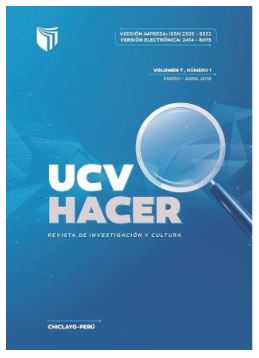Education in eco-efficiency
Keywords:
Education, Eco-efficiency, SustainabilityAbstract
The aim of this study is to conduct a literature review focusing on the conceptual framework that has developed the "Education in Eco-efficiency", which aims to generate the same environmental sustainability commitments, to strengthen action seeking an important initiative in eco-efficiency for the education sector in the conservation and recovery of our natural resources, but this involves several inter experiences. Eco-efficiency is based on two pillars: the reduction of the overexploitation of natural resources (to achieve a more sustainable use) and the reduction of pollution associated with educational and production processes. But it goes further: towards seeking an increased productivity of natural resources and to reduce the environmental impacts along the entire life cycle of products, therefore, education is essential to achieve the desired sustainability. The article collects the methodology to be followed by educational institutions to be competitive in a globalized world where one is becoming more efficient or rather eco-efficient and so we contribute to form true environmental citizens. We present the results of environmental achievements of some educational institutions in the Lambayeque region.
Downloads
Downloads
Published
How to Cite
Issue
Section
License

This work is licensed under a Creative Commons Attribution-NonCommercial-ShareAlike 4.0 International License.










